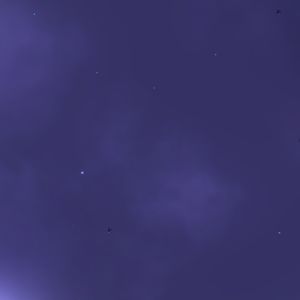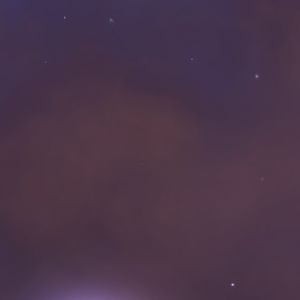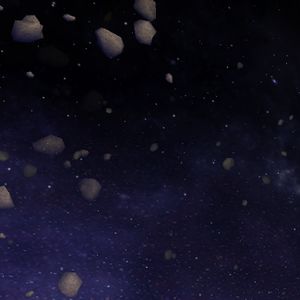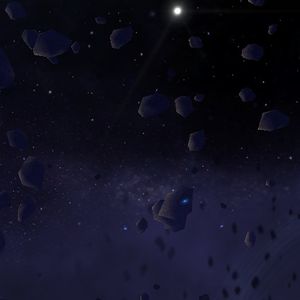
|
This wiki is closed in favour of the new wiki. Information shown is likely to be very out of date. |
Orleanais
This article has not been verified to be up to date for the latest version of the Discovery mod. The last edit was made on 24.10.2018 (DD/MM/YYYY). You may help by updating it, often by using the code generator.

|
A lot of these system pages are outdated, Space's nav map may be better. |
Orleanais was the second system of Gallia that was settled. It is part of the Gallic core worlds and very loyal to the gallic crown. Planet Orleans is very well planet for plants. Some people call Orleanais the Kyushu of Gallia because it feeds most other Gallic Core worlds, but it also holds large parts of valueable metals like Nickel or Yittrium.
| System navmap (FL, v4.88.1) (link) |
|---|
| System navmap (FLC, v4.88.1) (link) |
|---|
System Overview
|
Local factions
Lawful
Semi-Lawful
None known Unlawful
Stations
|
Planets
|
Commodities
Produced
Mineable
None known
|
Areas of Interest
Nebulae
Eure Nebula
Eure is a bright blue nebula located on the edge of the Orleans system. Several gas miners usually operate within the field and extract inert gases, with the nearby Chateaudin facility available to process and ship those. The name originally belonged to a French river and department which was located in the ancient provence of Normandy. Therefore, Normandy colonists considered naming of the nebula inappropriate and petitioned to rename it in order to use the name for a nebula in the Normandy system. The petition was declined, and the Normandy nebula in question is still named "Nebula N03C14 (Eure)" on official Gallic nav maps. After the First Gallic War the separatists use their own navigation maps on which Eure in Orleans is named Loir Nebula.
Nere Crystal Cloud
Nere is a medium-sized nebula consisting of ice particles. Same particles are present in the whole Loire field, but in far lesser quantities. Gallic astronomers consider increased ice crystal density in Nere to be a result of anomalous activity by the Lyonnais jump hole. Another jump hole located in Loire, one that leads to Dauphine, did not cause similar effects. This supports the theory that the jump holes are objects of unpredictable origin, and each individual one may have different physical characteristics.
Asteroid Fields
Sologne Asteroid Field
Named after a large marsh region of northern-central France, Sologne is a large asteroid field in the Orleanais system. Pirate presence in the field is among the highest in the Gallic Core Worlds, and a base belonging to Brigands is supposedly located in one of the central asteroids, with a jump hole leading into Berry further increasing unlawful presence. The field is known for its high asteroid density and is rumored to contain a mystical base where romantic dreams of gallant travellers may come true. Few who attempted to find whatever romance the field contains usually arrived to Salbris to find an environment much less romantic (albeit full of people willing to fulfil various sorts of semi-romantic dreams for a fair payment), or ended up crashing into an asteroid or into a mine. An old mine field is present near the edge of the field, but its exact origin or purposes remain unknown.
Loire Ice Asteroid Field
Loire field was once counted to contain approximately 5 x 10e9 more water than River Loire on Planet Earth carried during five thousand years. This ice field is one of the largest in Sirius outside the Barrier region, and the largest one in Gallia, with Somme Field in Picardy coming a close second. Ice asteroids in the field are very large, but the spaces between them are equally vast, making the field relatively easy to navigate. Nere, a dense cloud of small ice particles, is located within the field, with a jump hole leading into Lyonnais located in the very center of the cloud. In a more remote part of the field, pilots may find a jump hole route into Dauphine space.
Montargis Asteroid Field
Montargis is a prominent asteroid field that was the first area explored in the Orleanais system. The Ile-de-France jump hole located within the field was the only way to get to Ile-de-France from the system until the jump gate was built. Since then, all legal traffic goes through the more reliable gate, while the jump hole remains for use of freelancers, pirates, and other undesirables. The field's surroundings are frequently patrolled by the Royal Police, and nearby trade lanes are almost always safe from outside attacks.
Artificial Formations
Beuvron Debris Field
This medium-sized debris field was formed around Romorantin in 450-550 AGS when active space construction was underway in Orleanais. The field proved to be hard to clear due to the presence of the surrounding asteroid field of Loire. Large debris regularly threaten nearby trade lanes, and EFL has to maintain a small fleet of several service ships to drag dangerously aligned pieces of debris out of the lanes' way.
Freteval Debris Field
Freteval debris field was formed after a silver-rich asteroid field of Fretaval that once occupied the area was completely mined out in such a harsh way that most asteroids were pulverized into dust. The debris was mostly generated by construction works taking place near Chateaudin. A few surviving mined-out asteroids still remain within the field, producing additional navigation hazards.
Jump Gates/Holes
| Spoiler: Jump Hole/Gate Locations | |||||||||||||||||||||
|---|---|---|---|---|---|---|---|---|---|---|---|---|---|---|---|---|---|---|---|---|---|
|








